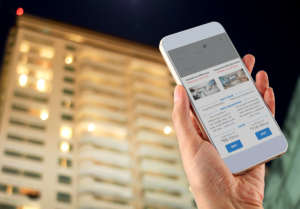Online reviews have an enormous impact on potential guests’ booking decisions. Negative hotel guest reviews significantly impact a property’s reputation and the likelihood a guest will book, or a happy guest will return. According to one study by Brightlocal, 94% of consumers said they avoid businesses with negative reviews. And keeping your overall score high is important, with 57% of consumers only selecting businesses with 4 or more-star ratings out of 5.
It’s crucial for hoteliers to adeptly address and prevent negative reviews before they can grow – or before they’re posted at all! A powerful tool in hoteliers’ arsenal is a Guest Messaging System (GMS). Hotel messaging software automates communication with your guests, ensuring better overall experiences, and proactive communication before the review goes live at all.
In this guide, we’ll explore how to respond to negative hotel guest reviews, as well as how a hotel GMS can help deal with and sometimes prevent them.
How to Respond to a Negative Hotel Guest Review
Bad reviews are unfortunately inevitable. Even with a deep commitment to excellent guest service and beautiful accommodations, things can go wrong. It’s important to know what to do when you receive bad reviews and have a plan in place no matter what.
As Benjamin Franklin once famously said: “an ounce of prevention is worth a pound of cure.” For hotels, this means avoiding bad reviews on public channels by preventing them from being posted. Send out a request for feedback every time a guest checks out to catch potential bad reviews before they happen – and push happy customers to review publicly.
A hotel GMS lets you automate this process. Create an automatic response to any low score, with the ability to remind staff to also reach out personally. Your response to any negative feedback of review should be prompt, personalized, and apologetic. Include in any response relevant contact details, an offer to keep the conversation going, and actionable solutions. When all of that is said and done, be sure to follow up and learn from the experience.
Respond promptly
Time is of the essence when it comes to responding to negative reviews. Responding promptly shows attentiveness and a commitment to guest satisfaction. Make sure to frequently check review platforms to ensure that you’re responding to reviews shortly after they’re posted.
Using automation ensures that you always start the conversation immediately, even if your staff is busy!
Personalize the response
Generic responses can worsen the situation. Personalizing your reply shows genuine concern and a willingness to address the specific concerns raised.
Rely on your database of guest information to facilitate personalized interactions. Your guest messaging platform should be connected to your PMS to pull details from that existing database. Even if you start off with an automatic response, a little personalization goes a long way. Names are key: address the guest by name and include your own name in the answer!
Be apologetic
No matter what the situation was that led to a bad review, it’s essential to start off with an apology. Excuses or defensiveness will not placate the unhappy guest. If it’s in a public forum, future guests reading the negative review are more likely to develop a bad impression of your property.
Expressing genuine apologies can go a long way in diffusing tension. Your policy should be to begin every response to a negative review with an apology and an acknowledgment of the guest’s concerns. When a customer provides a low score in your post-stay survey, your automated response should start with an apology.
Provide contact information
Offering direct contact information shows that you are taking the negative review seriously and gives the guest the ability to continue the conversation. Empower guests to reach out privately by providing a point of contact and contact channel. This gesture shows transparency and a commitment to resolving issues away from the public eye.
We recommend having at least two communication channels in your response, such as email or phone. This allows guests to choose their preferred communication style and proves a commitment to satisfaction.
Take the conversation offline
Moving the conversation to a private channel is crucial for detailed discussions. Public back-and-forths can harm the hotel’s image. If the negative review has been posted publicly, you’ll want to move the conversation to a more direct format as soon as possible.
Offer solutions
No matter what format you start the conversation in, you need to make sure that you’re showing some kind of resolution to the problem. Provide actionable solutions to address the guest’s concerns. Go beyond just telling a guest that you’ve heard their feedback.
Show that you’re considering their feedback with a solution to their problem. Examples of this could include:
- Discount on a future stay
- Offer for a partial refund
- Discounts or coupons to your on-site F&B
- A specific plan for improvement with relevant staff or departments
- Plan of action for specific problems

Follow up
A follow-up message shows that the hotel values feedback. It also shows you’re dedicated to supporting guest satisfaction. Your guest messaging system can automate the process of following up with guests to ensure that all guests feel like they have been heard.
A little can go a long way, and a simple follow up can be the difference between a quick email exchange with an unhappy guest and a 1-star review on a public website.
Learn from the experience
Use negative reviews as learning opportunities. Analyze common themes and identify areas for improvement. At the end of the day, bad reviews are simply part of doing business as a hotel. When guests provide negative feedback via public or private channels, make sure that relevant parties within your organization hear this feedback and can act on it in the future.
How to Prevent Negative Hotel Guest Reviews
Preventing a negative review starts by ensuring that guests can provide feedback in as many forms as possible. You can’t fix a problem you don’t know about! To use your hotel GMS to automate guest communications and prevent negative reviews, you’ll need to:

- Streamline communication channels
- Keep your brand voice consistent
- Personalize your communication
- Find patterns among negative reviews
- Connect with guests directly
- Convert negative experiences to positive outcomes
While a few bad reviews may be inevitable these strategies will help them stop piling up. Here’s how you can avoid negative reviews before they can even be published.
Streamline Communication Channels
In the fast-paced world of hospitality, streamlined communication channels are crucial for guest satisfaction. Leverage email and text-based marketing automation to keep guests in the loop about their stay, pre-arrival instructions, and post-departure follow-ups.
Automated and personalized emails should welcome guests with essential information, ensuring a seamless experience. Keep your guests informed to make them feel like they are your #1 priority.
Keep Brand Voice Consistent
By employing a consistent tone, your guests will feel a sense of familiarity and connection, no matter how you’re reaching out. Consistency is key when it comes to communication. Ensure that your messaging, whether in emails or texts, reflects the unique personality of your hotel.
For instance, if your brand is going for a casual style in its offerings and on-site look and feel, carry this tone through automated emails and text messages. What’s more, putting your hotel branding on emails makes it clear who is reaching out. Consistency builds trust, reducing the likelihood of negative reviews arising from misaligned expectations.
Personalize Responses
Personalization goes a long way in fostering positive guest experiences. For example, after a guest’s stay, send a personalized email expressing gratitude for choosing your hotel and addressing them by name.
Additionally, automated text messages can inquire about specific preferences for future stays. If a guest does express negative feedback, it’s important to respond individually in addition to letting the automation do its job. Personalized communication shows genuine care, making guests feel valued and less likely to leave a negative review.
Find Negative Review Patterns
Monitoring and identifying patterns in negative reviews is a proactive approach to prevent bad reviews and negative experiences in the future. Categorize common complaints in your post-stay surveys for actionable next steps.
A pattern of commentary about your housekeeping shows that this department may need a second look. A targeted, automated post-stay survey helps find and rectify issues promptly, reducing the likelihood of negative feedback.
Connect with Guests Directly
Establishing a direct line of communication with guests is essential to prevent negative reviews. Leverage automated emails and texts to check in on guests during their stay, seeking feedback and addressing concerns in real-time.
For example, a friendly automated text midway through their stay can inquire about any issues, allowing the hotel to address concerns promptly. Connecting directly enhances the guest experience while mitigating the likelihood of a negative hotel review. Establishing direct communication with guests via text is a fantastic way to keep them engaged. Learn how to win with hotel SMS/text marketing, with specific messages throughout the guest journey.
Convert Negative Experiences into Positive Outcomes
When negative reviews do occur, seize the opportunity to turn things around. Use automated email campaigns to follow up with guests who have expressed dissatisfaction. Offer personalized solutions, such as discounts on future stays or complimentary amenities.
By actively addressing and resolving negative experiences, hotels can salvage the relationship with the guest while highlighting a dedication to customer satisfaction that can positively impact future reviews.
What’s next?

Responding to and preventing negative hotel guest reviews is a complex task that requires a combination of responsiveness, empathy, and proactive measures. Your Guest Messaging System can enhance your ability to manage guest engagement, turning potential crises into opportunities for growth and improvement. By following these steps, hoteliers can not only address existing issues but also create a guest-centric culture.
Fuel GMS is a proven system that helps engage your guests with pre- and post-stay emails and texts. Watch a video to see Fuel GMS in action and learn more about our system!





